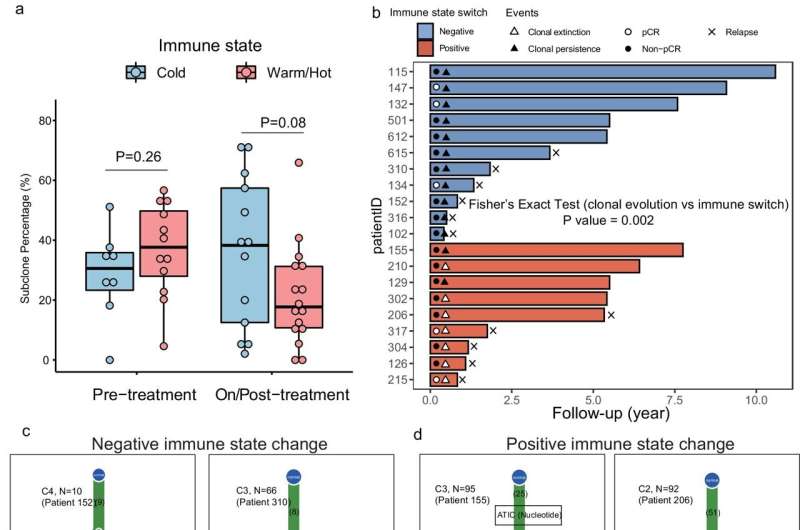This article has been reviewed according to Science X's editorial process and policies. Editors have highlighted the following attributes while ensuring the content's credibility:
fact-checked
peer-reviewed publication
trusted source
proofread
Study examines metabolic reprogramming of breast cancer tumors during neoadjuvant chemotherapy

In a study published in Nature Communications, scientists have made significant strides in understanding the complex interplay between the immune system and cancer metabolism in breast cancer treatment. The research offers new insights into how the immune state and cancer metabolism evolve during neoadjuvant chemotherapy (NAC).
The study utilized proteomics, genomics, transcriptomics and histopathology to analyze tumor tissue samples from breast cancer patients before, during, and after NAC.
"We used multiple 'omic' analyses to examine metabolic reprogramming within the tumor microenvironment (TME) in breast cancer and studied whether and how it evolves during neoadjuvant chemotherapy.
"We identified targetable vulnerabilities of immunometabolism with the potential to be exploited in immunotherapy combination strategies," says Theodoros Foukakis, researcher at the Department of Oncology-Pathology, Karolinska Institutet, who led the study.
The researchers discovered that changes in immune state, tumor metabolic proteins, and tumor cell gene expression are linked to treatment response. Potential drivers of immunometabolism were identified and validated in vitro, suggesting that targeting tumor metabolism could be used for immunomodulation.
Implications for future therapies
The findings underscore the potential of targeting tumor metabolism to enhance the effectiveness of immunotherapies. By understanding the dynamic relationship between tumor-intrinsic metabolic states and the tumor microenvironment, new prognostic biomarkers and therapeutic targets may emerge, paving the way for precision medicine in breast cancer treatment.
This study not only sheds light on the intricate ecosystem of breast cancer but also opens the door to novel treatment strategies that could significantly improve patient outcomes. This approach to characterizing the genomic and proteomic landscape of breast cancer represents a promising direction for future cancer research and therapy.
More information: Kang Wang et al, Longitudinal molecular profiling elucidates immunometabolism dynamics in breast cancer, Nature Communications (2024). DOI: 10.1038/s41467-024-47932-y





















